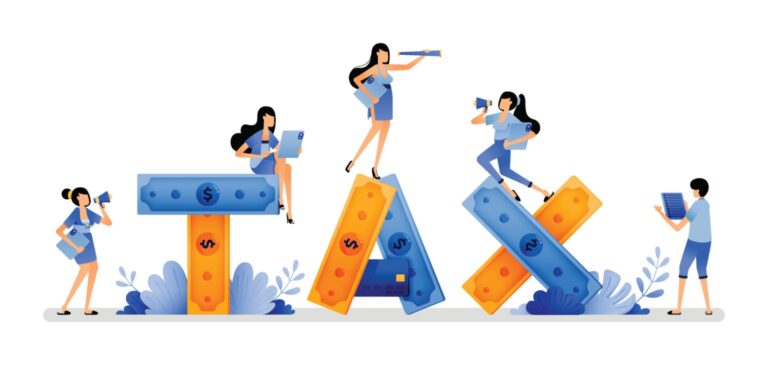I know the feeling. You put in all the work, and then the client just doesn’t pay. It’s frustrating and demoralizing. It can also have a negative impact on your business.
But don’t worry, you’re not alone. This article is here to help you out with the best tips on what to do if a freelance client won’t pay up:
Have a Contract in Place in Case a Freelance Client Won’t Pay Up
One of the best ways to make sure you get paid for your work is to have a contract in place. A contract outlines the expectations and responsibilities of both parties, and it can help to prevent disagreements and misunderstandings. If you don’t have a contract, it can be more difficult to get paid for your work.
What is a contract?
A contract is a written agreement that states the responsibilities and expectations of each party in a freelance job. It outlines who does what work, by when, and for how much money.
What should be included in a contract?
There are three main parts to a contract: the opening paragraph (which sets the tone for your working relationship), the terms of payment (how much you will be paid and when), and each party’s responsibilities (who does what work, by when, and for how much money).
Once you have an agreed-upon contract in place, it will be easier to get paid by a client for your work.
How do I write a contract?
If you don’t already have a contract, then you can easily create one. You can create your own using software like Adobe Acrobat or even Google Docs.
If you decide to use Google Docs, keep in mind that it’s not legally binding. If anything goes wrong, the court won’t accept this as evidence that a contract even exists.
For a legally-binding contract in case a freelance won’t pay, you’ll need to have a third party create or review your documentation.
Since there are so many different types of freelance projects and businesses, each contract should be unique.
However, we have created a generic freelance contract, which you can download here . You can personalize it and add in specific details about your situation to make sure that you and the client know exactly what to expect.
Why should you have a contract?
Having a contract in place can help to avoid disagreements and misunderstandings between you and your client. If you don’t have a contract, it might be more difficult to get paid for your work.
You should also consider using escrow services, which are used by people who are buying or selling online. Escrow is basically an online middleman that holds the money until you deliver what you promised. This can be helpful if one party doesn’t fulfill their end of the bargain. This is usually only necessary with larger projects, or when working with people who are new to freelancing.
How do you send a contract?
Most clients will ask for a contract before they hire you for a project. However, some clients might surprise you by asking for the terms of payment after you already started working or handing you an employment contract to sign. You should always get them to sign your contract, but it might be helpful for them if you provide a boilerplate template like this one .
What should you do if a client won’t sign a contract?
If the client refuses to sign your contract (or employment agreement), try talking things out with them. Sometimes they might have a good reason not to sign it. If they do, then you’ll need to create a custom contract with their requests and stipulations.
If the client still won’t agree to sign a contract, then you have no obligation to work for them. Freelance projects are business transactions, and if the other party won’t sign a contract that outlines their responsibilities, then it might be best just to walk away from this transaction.
What should you do if a client doesn’t pay?
Unfortunately, sometimes clients don’t keep gree to sign your contract, then there’s no way that you can work together. You should give them back any materials that they’ve already paid for and move on to another client.
Send invoices and follow up on payments promptly
It’s important to send invoices and follow up on payments promptly, especially when you’re dealing with a freelance client who may not be as organized as they should be.
By sending invoices and staying on top of things, you can avoid any potential conflicts or problems down the road.
Send invoices on time
When you create an invoice, send it to the client at the agreed-upon time. If they’ve already received your work, send them the invoice by email or snail mail on the same day that you submit your final project.
Some jobs might require extra time for revisions or corrections. You should specify that these additional services will result in extra fees and that the client must pay them before you submit your final draft.
Stay on top of payments
If you want an invoice to be paid in full within the agreed-upon time frame, then you need to make a note of when it’s due. If a payment is late, follow up on it in a timely manner. You need to be firm and assertive when you follow up on payment but always remain professional.
There are lots of different tools and software programs available, which can help you to keep track of deadlines and follow up with clients. Here’s a list of some popular apps that freelancers use: FreshBooks, WaveApps, WorkflowMax, Bonsai Invoice.
When you have clients, you need to track time spent on a project and bill for it. You can use a spreadsheet to do this or you can look into using timekeeping software, like Timecamp
Ask for a deposit before you even start the work
When you’re freelancing, it’s always a good idea to ask for a deposit before you even start the work. This will ensure that you’re getting paid for your time and effort, and it will also help to protect you from clients who may not be able to pay. If the client refuses to pay the deposit, then it’s best to just walk away from the project.
The importance of a deposit
The deposit ensures that the client is invested in a project before you start working on it. For larger jobs, it’s best to ask the client for at least 50% of the total amount upfront. You can use these funds to pay for expenses or materials needed to complete the job, and once you’ve turned over your final draft, it’s time to bill for the remainder.
Using a boilerplate template is the easiest way to do this.
What to do if the client refuses to pay the deposit
Sometimes, even after discussing things with your client, it’s just not possible to come to an agreement about payment terms or projects deadlines, and the client is still not paying you for your services.
If that happens, then there are still other options available to you.
You can always work out a payment schedule if the client is having problems with their finances, but you also have other options, like not working with difficult clients.
Don’t give up your rights to ownership of your work.
When you’re freelancing, it’s always a good idea to make sure that you own the rights to your work.
This way, if the client decides not to pay, you can still use your work in other projects or sell it to other clients.
You may also want to consider copyrighting your work, which will give you even more protection.
If the client refuses to sign a contract that gives you ownership of your work, then it’s best to just walk away from the project. It’s not worth risking your time and effort if the client isn’t willing to respect your rights as a freelancer.
Set clear payment terms in advance to avoid any confusion with the client.
Freelancers need to be careful to set payment terms before starting a project. This way, there won’t be any confusion or problems with the client down the road.
There are a few different ways you can get paid as a freelancer:
- An upfront deposit (30-100% of your project fee) before work begins;
- A milestone payment (after each piece of work is completed);
- A percentage of your project fee every month until the project is complete; or
- A combination of these options.
If you receive an upfront deposit, you can use that money to purchase supplies and materials before starting your work.
If you covered all the bases and the client still won’t pay, you can do the following.
Send a reminder email, phone call or a written letter if you are waiting on payment from a client.
This is always a good idea if you are waiting for payment from your client. Even though it’s frustrating, sending polite reminders can help to keep the client accountable and avoid misunderstandings
This will ensure that the client is aware of the situation and that you are available to discuss any payment issues. It may also help to get the client’s attention so that they can resolve the issue as soon as possible.
- Give an update on what you’ve done and a timetable for your work
- Remind the client about their unpaid invoice
- State that there may be consequences (like legal action) if not paid quickly
Get help if your freelance client won’t pay.
If you’ve repeatedly tried to resolve the issue with your client and still haven’t been able to get paid, then it’s time for you to take a different approach.
There are a few different organizations that can assist you, like the Freelancers Union or the American Bar Association. You can also speak with an attorney about the situation. In this situation, there are a few steps that you can take:
Escalate the situation with the client and Take Legal Action
If you can’t get your client’s attention, then it’s time to escalate the issue.
Send them an email stating that if they don’t pay you soon, there will be consequences (like referring the account to a collections agency).
Use a collections agency
If the client has ignored your emails and phone calls, then you may want to consider turning the situation over to a collections agency. This is also a good option if you’ve sent one or two reminders and still don’t hear back from the client. A collections agency will help you get paid without any hassle.
Use small claims court
If your client still won’t pay, then you can pursue small claims court. This is a formal legal process that’s usually inexpensive and relatively quick. If the client has ignored all of your polite requests to get paid, then you may be able to use small claims court to get them to pay up for their unpaid invoices.
This is usually the last resort. You usually need to win small claims court in order to get paid, which means that it’s usually best to avoid this option if possible.
However, sometimes it is the only solution when you can’t get your client to pay.
Walk away from the project and find a new client who will pay you for your work.
There are times when freelance clients just won’t pay up.
It could be because you didn’t make it clear in your contract that they needed to pay you before working with them, or maybe the client is trying to get out of paying for something.
The client being seemingly unreachable and ghosting payments is one of the downsides of freelancing.
When the freelance client won’t pay up, there are a few things you can do.
If they still don’t pay after sending reminders and escalating the situation with them, get help from organizations like Freelancers Union or American Bar Association.
You might also want to consider turning over your case to a collections agency if it’s been ignored for too long.
Finally, try small claims court if all else has failed in order to get paid on unpaid invoices before abandoning the project and find another client who pays promptly.
FAQ:
What is a collections agency?
Advocates who help get unpaid accounts paid.
What can a collections agency do for me?
They will make more of an effort to get your client to pay, sometimes using the legal system to get your money. They can also work with you on taking further action if this doesn’t get you results.
Will it cost anything?
Typically no! In fact, they might even get more of your money back than you would have gotten yourself.
Why should I send one or two reminders and not just use a collections agency immediately?
Making sure that the client knows in advance about what’s going on and why might motivate them into paying up and avoiding escalating the situation.
Why is it a good idea to avoid small claims court when possible?
In most cases, it’s better for both parties if you can avoid going that far. It can be costly and time-consuming.
It might add tension to the relationship. If the client has been unreasonable or dishonest, then small claims court maybe your best option.
What is freelancing?
Banding together in order to get jobs done without being employed by a company or business.
What does freelance mean? Working for yourself and having an independent job rather than a full-time job with a company.
What is a contract? A document used between two parties with certain terms and conditions that have been agreed upon ahead of time.







